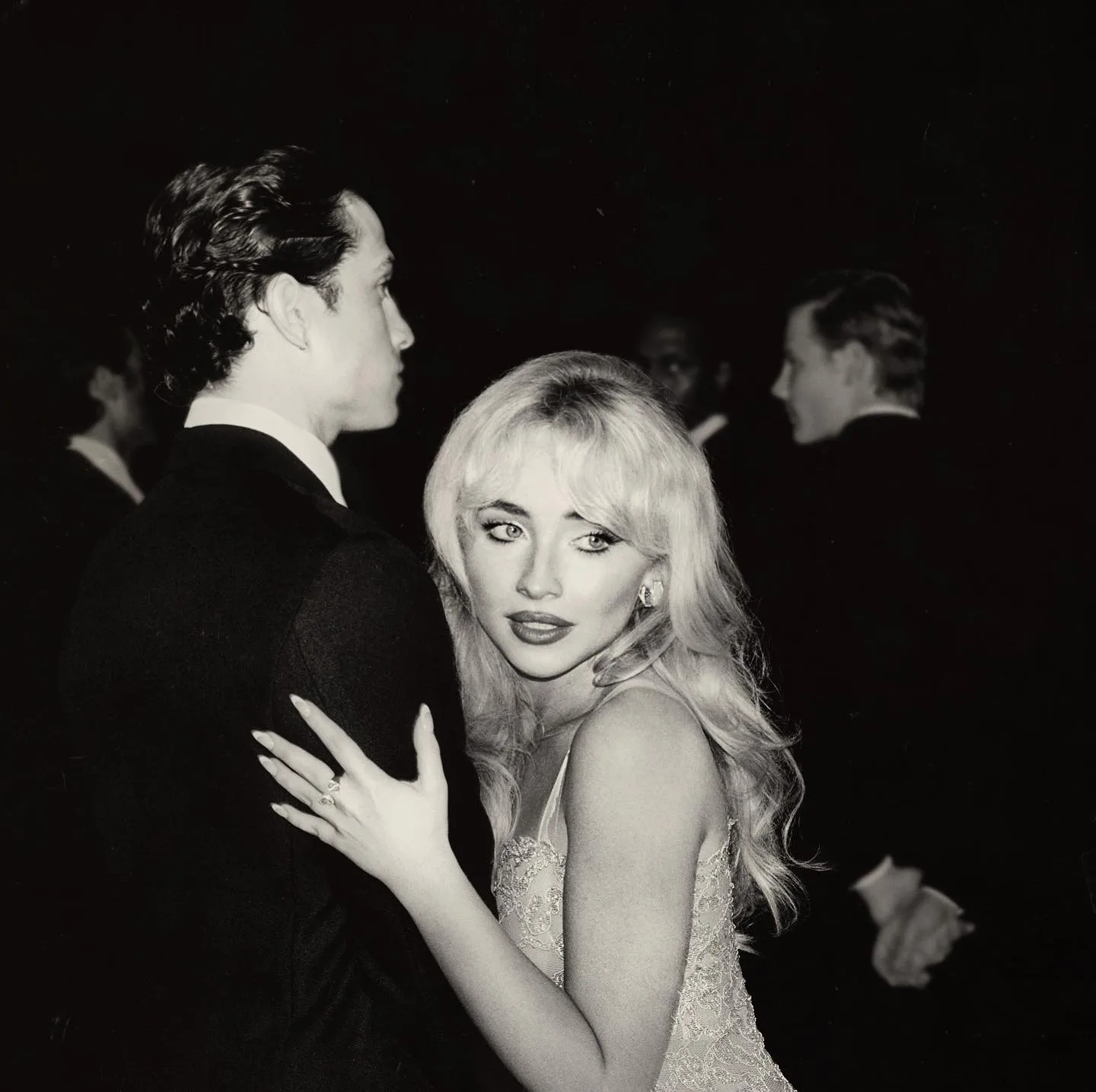Pick-me girl — that was one of the many labels the internet gave to Sabrina Carpenter when she dropped the cover for her album Man’s Best Friend back in June.
ICYMI, the artwork showed the singer on all fours while a faceless male tugged her by the hair.
While some applauded Sabrina for her satirical work – even suggesting that the figure was her in a suit – others were quick to judge.
On TikTok, the artwork was called anti-feminist, leading the two-time Grammy winner to earn her pick-me girl stripes.
Although the backlash was enough to get the Manchild singer to release a new, alternate album cover – one she jokes was “approved by God” – a bigger question about how we discuss women’s sexuality remains…

Where did the pick-me girl come from?
Ah yes, the pick-me girl.
The type of girl who drinks beer – and judges you if you don’t – will make fun of other girls or tell you she “gets along better with guys, because girls are too
much drama”.
While the term has been around for years, it shot to popularity on Twitter in 2016 to call out women who would try to gain male attention by ridiculing other women.
In 2022, it resurfaced when Meredith Grey’s “pick me, choose me, love me” line from a 2005 episode of Grey’s Anatomy went viral again, this time on TikTok.
Today, a search of “pick me” on the app reveals 307.5 million videos – however, it seems to have strayed from its initial characterisation.
“Originally [the pick-me girl trope] was meant to call out internalised misogyny, but now it’s often weaponised to shame,” Lovehoney sex and relationship expert Christine Rafe notes.
“In modern sexuality, they’ve become shorthand for criticising how some women present themselves, especially if they’re seen as catering to the male gaze.”

Is it an appropriate way to discuss sexuality?
According to Christine, when we use the pick-me girl label in calling out behaviour catering to men or the male gaze, it’s often these same patriarchal systems that benefit most – ironic, really.
“When women tear each other down for how they choose to express themselves, it reinforces the idea that there’s only one acceptable way to be empowered,” she says.
“Feminism is all about freedom, not prescription, so when so-called feminist content starts to gatekeep what empowered sexuality looks like, it becomes just another form of control.”
She adds that the real danger lies in how this behaviour replaces one set of rules with another – silencing women who are figuring things out or expressing desire in ways that don’t fit into a neat narrative.
So where do we go from here?
Christine suggests leading with curiosity rather than judgement (and the pick-me girl trope) when discussing how women express themselves.
This includes avoiding shaming or stereotypical language – such as referring to them as attention-seeking, too much, desperate or vanilla.
“We need to remind ourselves that sexual expression and sexuality is personal, unique and shaped by a multitude of factors – culture, upbringing, identity, experience and, most importantly, individual choice,” she says.
“If we want to create a culture supporting healthy sexual development, especially for younger generations, we need to move away from quick judgements and binary thinking.”
As a bottom line, Rafe recommends asking what it means for them and whether they are feeling safe, seen and in control, rather than if what they’re doing is empowering or not.
 Instagram
Instagram


